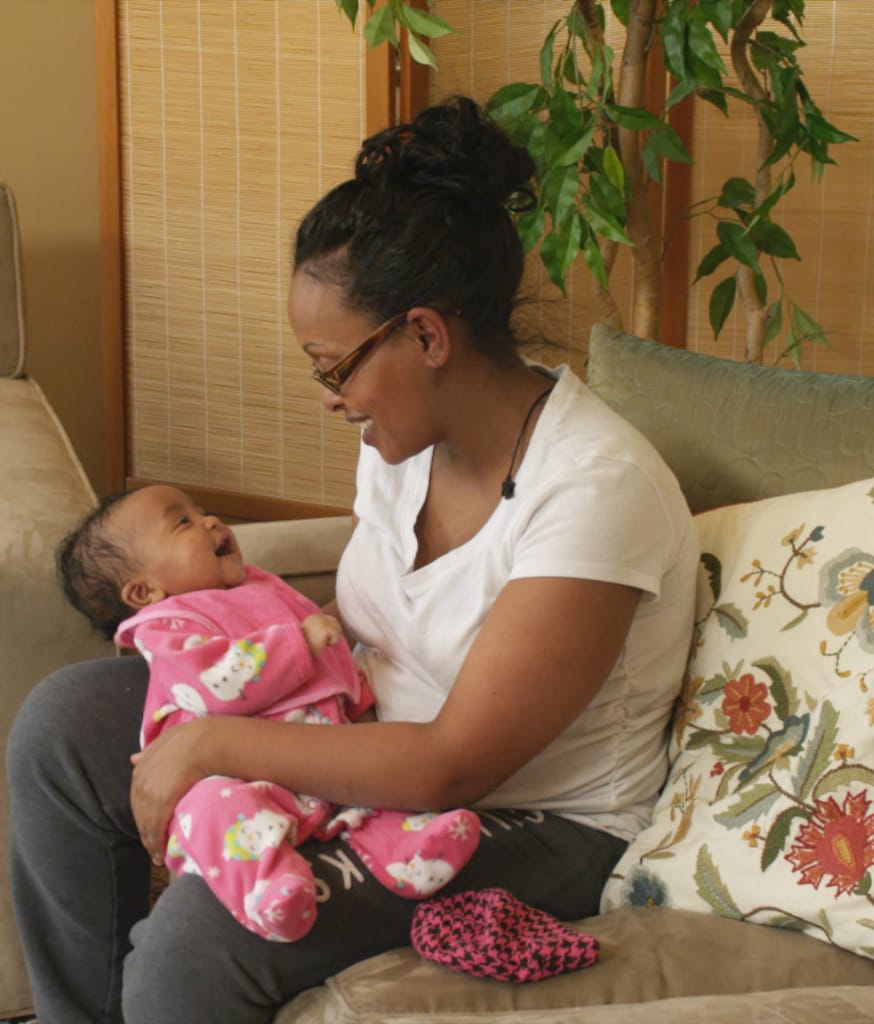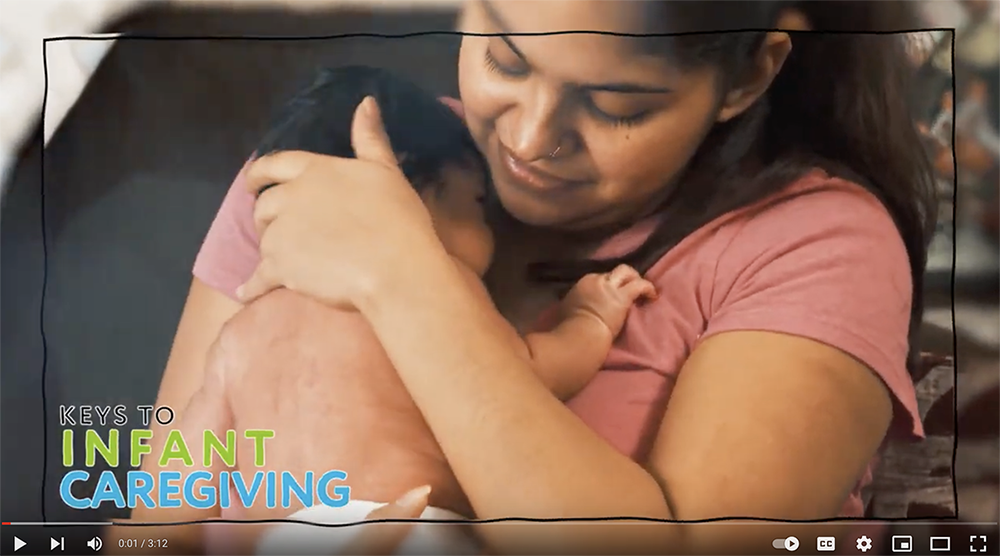
Understanding Infants: Keys to Infant Caregiving
A research based educational program for professionals that provides essential information on newborn and infant behavior.
Includes information on infant cues, infant states, state modulation and the importance of the feeding interaction.
Increases both provider and caregiver’s knowledge of the infant’s amazing abilities.
Builds confidence and competence in parent/caregiver’s care of their infants.
Assists providers in effectively sharing this knowledge with parents.
New video footage with a broader range of racial and ethnic diversity, including male caregivers.
Quicker pacing of content.
“Thought Bubbles” to help identify a babies’ needs and wants.
Preservation of some of the most valuable archive footage of newborns, only hours old, are included as part of the e-Learning course or as additional footage on the video streaming program.
“Keys to Infant Caregiving has increased our knowledge of infant behavior, states and communication patterns and has helped parents to know and understand their infant. Many parents have provided feedback indicating they feel an increased understanding of their child rather than just learning parenting strategies.” Hospital MCH Nursing Director

Understanding Infants: Keys to Infant Caregiving in Practice

Mother-Infant Interaction: Achieving Synchrony.
Leitch, D. Jan-Feb 1999.
Improving adolescent parent-infant interactions: a pilot study.
Letourneau N. February 2001.
Supporting Parents: Can Intervention Improve Parent-Child Relationships?
Letourneau N, Drummond J, Fleming D, Kysela G, McDonald L, & Stewart M. 2001.
Interventions with depressed mothers and their infants: Modifying interactive behaviours.
Jung, V., Short, R., Letourneau, N. & Andrews, D. July 2006
Viewing and studying the Keys to Infant Caregiving videos are an essential part of using the Parent Handouts with families. The handouts are written at a 6th grade reading level and are an adjunct to the discussion/teaching session with a family. The professionals working with families need to have a deep understanding of the content in the parent handouts to support learning and answer questions effectively. Viewing the videos with a group facilitator promotes discussion about integrating the content in practical ways with families. Brief homework assignments bring the material to life when applied to an intervention done with a family.
Engaging parents in open-ended, reflective questions about infant states,infant cues, infant behaviors, state modulation, and how important the feeding interaction/relationship is, provides the framework for giving instructional feedback. Using the parent handout Infant Cues is an excellent way to reinforce the learning that occurs when a family watches the BabyCues: A Child’s First Language video and uses BabyCues Cards as a teaching tool.
Questions?
Please give us a call
We look forward to talking with you!
-
Phone
206-543-8528
-
Business hours
Monday – Friday
7:30am – 4pm
-
E-mail
pcrp@uw.edu
-
Mailing Address
Parent-Child Relationship ProgramsUniversity of Washington - Box 357231
Seattle, WA 98195-7231
-
Office Address
Parent-Child Relationship ProgramsUniversity of Washington
Health Sciences Building F-346
Seattle, WA 98195-7231
Prefer exploring on your own?
Check out our FAQ section
for answers to common questions
WE WANT TO CONNECT WITH YOU!
Feel free to fill out our contact form or call us at 206-543-8528
